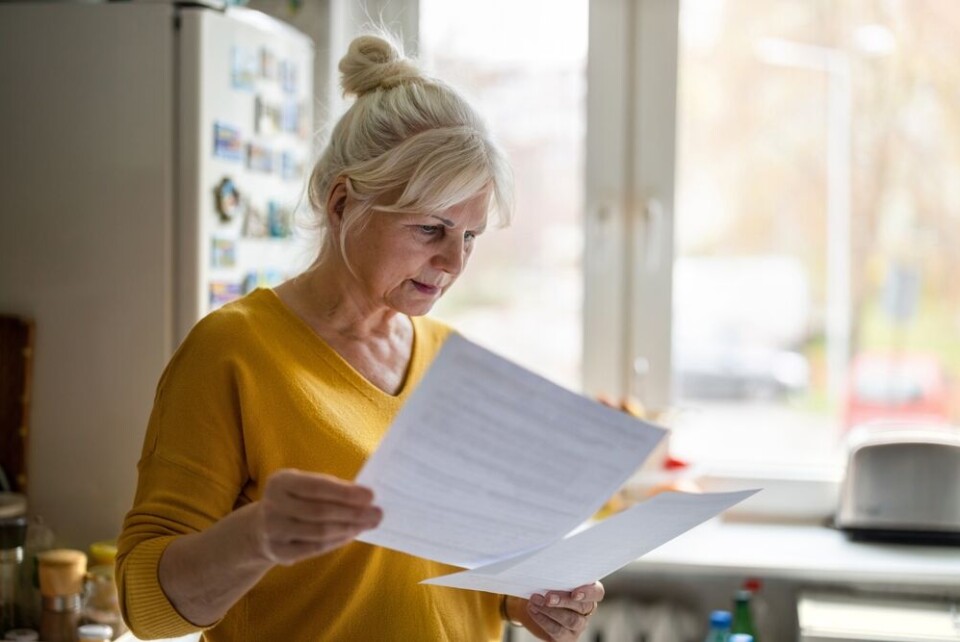-
Money, taxes, pensions: What's new in France in 2026
New money-saving budget, allowances, income tax freeze and retirement age
-
Will we have to pay back any of the French Aspa pension top-up money we have received?
Benefit can become repayable after a recipient’s death
-
Social charges on UK government pensions: France residents report progress
Issue now drawing attention at the highest levels
How UK pensioners in France are dealing with ‘life certificate’ issues
We explain how to get a French version of the form and how retired Britons had their document witnessed

Issues continue to be reported with regard to getting UK pensioner ‘life certificates’ witnessed, particularly over obtaining signatures from French people when the documents sent out are usually in English.
Read more: French mairie changes process for UK pensioner’s ‘life certificate’
They have to be signed by the pensioner and a local ‘responsible’ person, usually from a recognised profession, to certify the pensioner is still alive and should therefore still receive pension payments.
As many Connexion readers are concerned by these documents, we have collated further information and advice to help ease the process.
Request a French version
The simplest solution is probably to request a French version directly from the UK authorities, which two readers reported doing.
They said it can be emailed on request from the International Pension Centre.
You can find its contact details here. You can also contact this centre with other queries about the process.
The UK authorities have also now lengthened the period for sending back the form to 16 weeks (from 14) after the date shown in the form that is sent out.
However, it is advisable not to delay the process, as temporary pension stoppages are possible if the form is not received and logged in time.
Read more: UK life certificates: British readers in France pass on their tips
Experiences of UK pensioners in France
Two readers paid notaire for the ‘witnessing’, with one reporting a fee of €50 for this, which he said he was "happy" to pay if it meant no interruption to his pension payments.
One couple reported that "we got our doctor to sign them with no problem", while another reader had “no difficulty having a life certificate verified and signed at my mairie".
The latter added: "The secretary recognised the document, calling it by its English name, and was able to sign and stamp it without question."
Some mairies will, however, not sign an English form but will produce their own French certificat de vie, if asked. In one case a mairie even "produced a multilingual version" of the form.
Another reader pointed out that the French even have a suitable template version that can be found online, called cerfa 11753*02.
He advised adding your UK national insurance number and phone number at the bottom of such a French form. He said he also sends it back with the English one which he receives from the pension service in the UK, which he attaches unsigned, for reference.
A pharmacy signed off for one reader, after his mairie refused.
More about the process
Pensioners are asked to approach their chosen 'responsible person' and sign the form in front of them, showing them proof of your identity (eg. passport / residency card / French national identity card).
The 'responsible person' (witness) should then sign in turn, and should stamp the certificate, which you then need to post back to the pension service.
The witness is certifying, essentially, that they believe you to be the person named in the form, that they have seen your photo ID and that they are not related to you.
The witness also needs to indicate their title or job, the name and address of their professional premises and to note which type of ID document you showed them.
Suitable people to witness the life certificate should be 'professionals' who are not a relative and do not live with you, according to a recent version of the form produced by the UK authorities.
The form suggests they could include, for example: a bank worker, a lawyer, doctor, physiotherapist, dentist, pharmacist, health clinic manager, local government official, judge, police officer or priest.
Another examples document published on a government website includes such jobs as airline pilot, journalist, optician, nurse, MP, or a person with honours such as an OBE.
Related articles
French benefit explainer: Apa, help to stay independent in older age
French benefit explainer: Aspa low pension income top-up
Can I get financial aid for insulation as a pensioner in France?
























